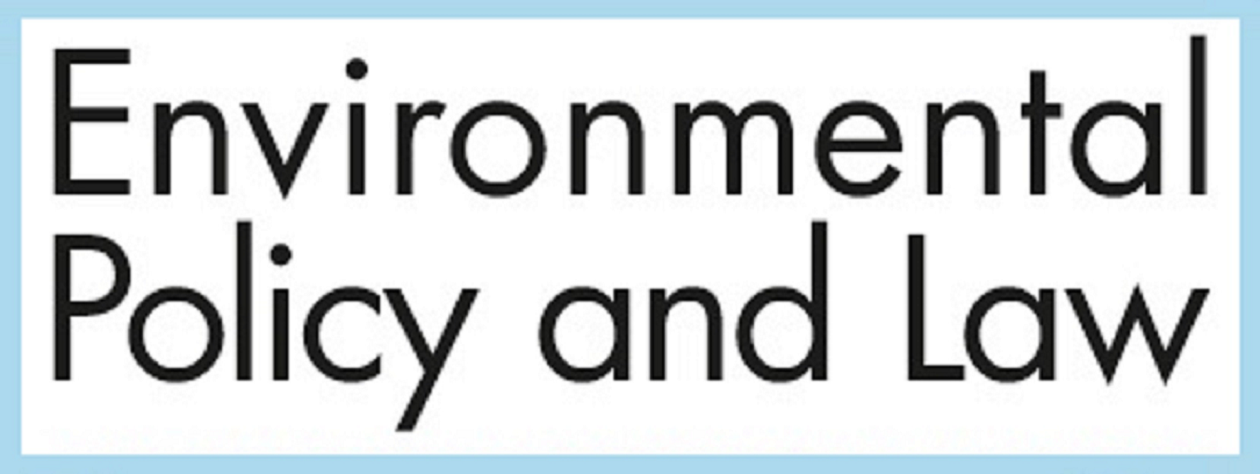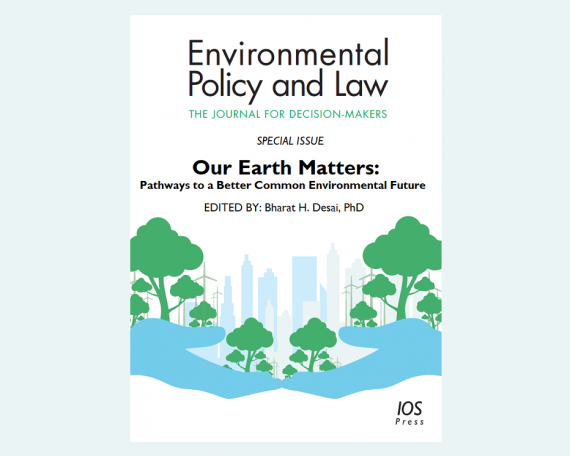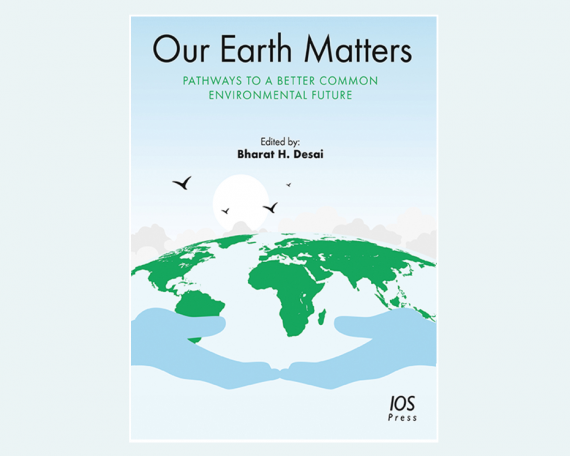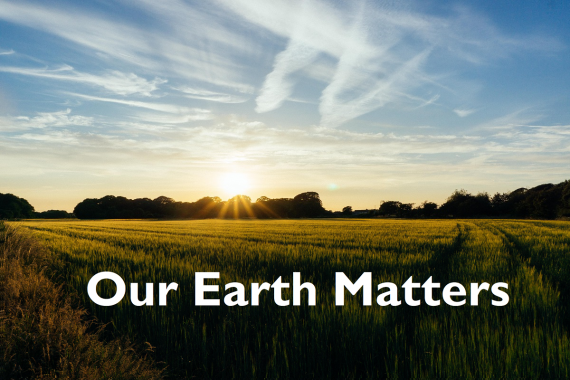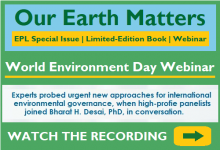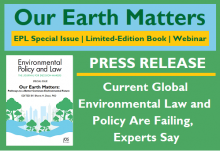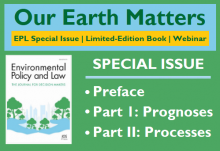Research Article:
Peter H. Sand | EPL, Vol.51, Iss.1/2, pp.5-11, 2020 (published online: May 26, 2021) | View online
"Climate change law" is considered by a number of legal scholars as an emergent novel discipline. The question, then, is whether the advent (and future prospect) of climate change has resulted in a coherent autonomous new body of law, be it a nascent one; or is it nothing more or less than the application of existing national and international environmental law to climatic problems? It is perhaps worth recalling that international environmental law itself only ascended to the rank of a recognized discipline of its own in the 1990s, over considerable academic scepticism at the time. Not un-similarly, the ongoing new project of the UN International Law Commission (ILC) for the drafting of guidelines on “protection of the atmosphere” has met with resistance from a few powerful States claiming that there is no need for further codification of international law in this field. Yet, considering our common interest in conserving the quality of the Earth’s atmosphere and climate, the ILC project may indeed encourage further development of a concept of inter-generational “planetary trusteeship,” owed by States as public trustees to present and future citizens as the beneficiaries.
Research Article:
Nico J. Schrijver | EPL, Vol.51, Iss.1/2, pp.13-20, 2020 (published online: May 26, 2021) | View online
Protagonists of global environmental governance often view the sovereign State as well as the principle of sovereignty as major stumbling blocks for effective environmental conservation and sustainable development. Some even herald the demise of the idea of the sovereign State. However, reality has it differently. Sovereignty is no longer an unqualified concept. Manifold new duties have been imposed upon the sovereign State as a result of the progressive development of international law. Much of the modern international law movement vests States with the responsibility to adopt regulations, to monitor and secure compliance and exercise justice in order to achieve its implementation, whereas supranational global environmental governance has remained notoriously weak. This article examines this proposition by reference to the environmental and developmental role of states in three landmark multilateral treaties: The United Nations Law of the Sea Convention (1982), the Convention on the Conservation of Biological Diversity (1992) and the Paris Agreement on climate change (2015). They demonstrate that sovereignty serves as a key organisational principle for the realization of global values, such as environmental conservation and sustainable development.
Research Article:
Peter Maurer | EPL, Vol.51, Iss.1/2, pp.21-24, 2020 (published online: May 26, 2021) | View online
Armed conflicts have direct and indirect impacts on the natural environment, and climate risks now magnify this harm for dependent communities. Too often, the natural environment is directly attacked or suffers incidental damage as a result of the use of certain methods or means of warfare. It is also at risk from damage and destruction to the built environment, across urban and rural areas. To reduce this harm, parties to armed conflict can integrate legal protections for the environment into their armed forces’ doctrine to reduce damage as they fight. Humanitarians in turn must commit sufficient resources and expertise to respond to the needs of those coping with the environmental consequences of conflict, and limit their own climate and environmental footprint. In order to address this challenge, in November 2020 the ICRC released the Guidelines on the Protection of the Natural Environment in Armed Conflict which aim to contribute in a practical way to promoting respect for and protection of this precious asset during armed conflicts.
Research Article:
Elizabeth Maruma Mrema | EPL, Vol.51, Iss.1/2, pp.25-33, 2020 (published online: May 26, 2021) | View online
While 2020 – dubbed the “Super Year for Nature – has seen the world battling an unforeseen global pandemic, this article comes back on the Convention of Biological Diversity and its regime, studies the aim of the negotiations of the post-2020 global biodiversity framework and the relevance of this framework for the planet, considering that the protection of biological diversity impacts all aspects of human life, including the full enjoying of human rights and protection against future pandemics.
Research Article:
David Freestone | EPL, Vol.51, Iss.1/2, pp.35-42, 2020 (published online: May 26, 2021) | View online
We already know that the ocean is at a crisis point. For the last twenty years and more, scientific report after report has flagged the increasing decline of ocean biodiversity and the damaging impacts of human activities –including over-extraction of resources and pollution, by plastic, of course, but overwhelmingly by anthropogenic climate change. It is only by allowing wildness to return –allowing natural ecosystems to return and heal themselves can we save the planet from ourselves. There are already two complex legal regimes governing both the ocean and climate change: the 1982 UN Convention on the Law of the Sea (LOSC) and the 1992 UN Framework Convention on Climate Change (UNFCCC). However, it appears, “the Law of the Sea and the Climate Change regimes are two of the giants of the international law treaty arena, yet ... they appear like ships that pass in the night.” How do we move forward on saving the blue half of our endangered planet
Research Article:
Owen McIntyre | EPL, Vol.51, Iss.1/2, pp.43-55, 2020 (published online: May 26, 2021) | View online
As a body of rules and a basis for inter-State cooperative practice, international water law suffers from certain important shortcomings. Most significantly, it is characterized by substantive normative indeterminacy, and from related deficiencies in its associated procedural and institutional frameworks, which retard its progressive development and limit its capacity to respond to the looming challenges of the impending global water crisis. Though it has evolved progressively in recent years to incorporate a far-reaching obligation upon watercourse States to adopt an ecosystem approach to the management of shared watercourses, this very development highlights international water law’s systemic difficulty in accommodating water management techniques which are critically important to effective implementation of such an approach and, ultimately, to addressing the water crisis. Such techniques, with which international water law struggles, include multi-faceted benefit-sharing, adaptive management, and public and stakeholder participation. The latter two are considered essential for implementation of an ecosystem approach, while the former comprises a cooperative technique facilitated by an ecosystem approach, by means of which watercourse States might eliminate inefficiencies and ensure optimal utilization of shared water resources. These problems illustrate the urgent imperative of continuing to develop and refine, if not completely reimagine, the rules of international water law.
Research Article:
Oliver C. Ruppel | EPL, Vol.51, Iss.1/2, pp.57-73, 2020 (published online: May 26, 2021) | View online
This article examines – from an international law perspective – the interface between soil protection, land degradation neutrality, food security, climate governance and trade in agriculture. Although these different spheres are most often viewed in isolation, an attempt is made to analyse them more holistically with the aim of identifying the connectedness for the purpose of finding some strategies for a better common future.
Research Article:
Gregory L. Rose | EPL, Vol.51, Iss.1/2, pp.75-80, 2020 (published online: May 26, 2021) | View online
Environmental law became global through the adoption of environmental treaties in the last quarter decade of the 20th century. Similarly, globalisation of criminal law accelerated when the Convention on Transnational Organised Crime 2000 (CTOC) deepened international legal cooperation between States to combat transnational crime. A protocol to the CTOC, complemented by voluntary guidelines and model legislation, could promote international harmonisation of laws against environmental crimes. This article argues that the time is right to bring together certain elements of international environmental and transnational criminal law.
